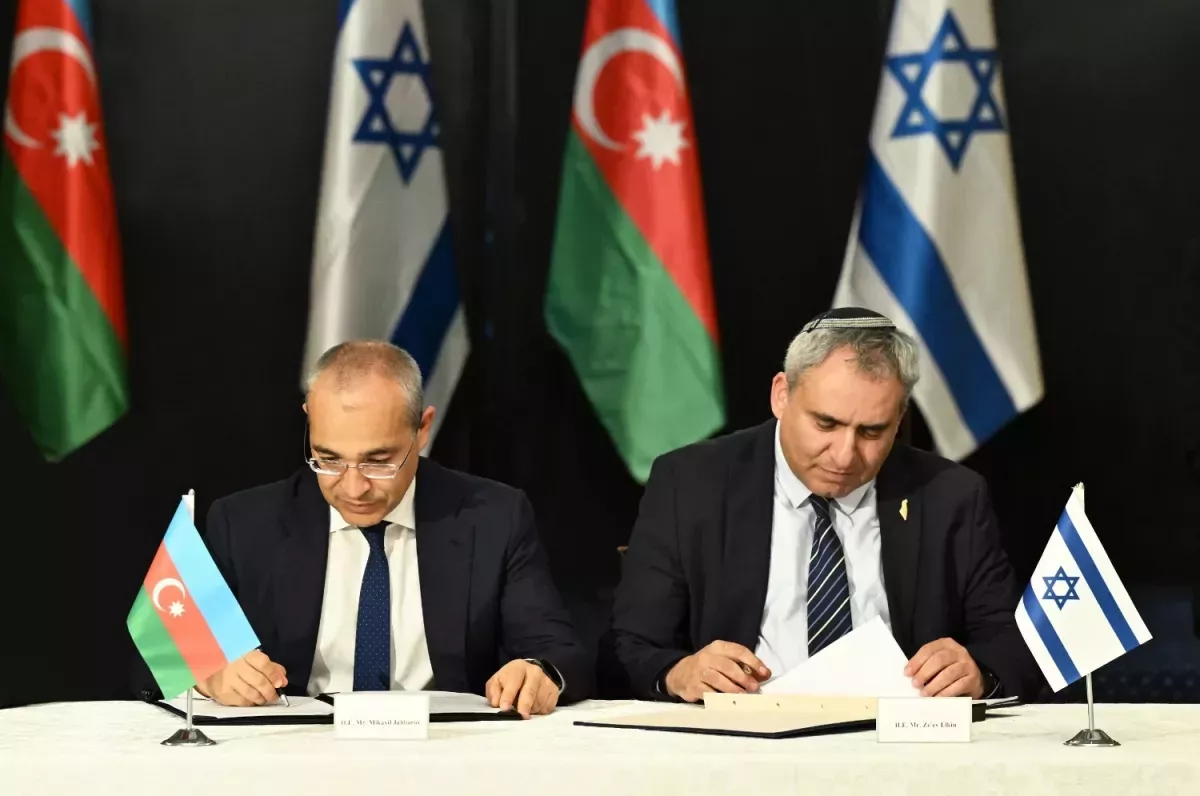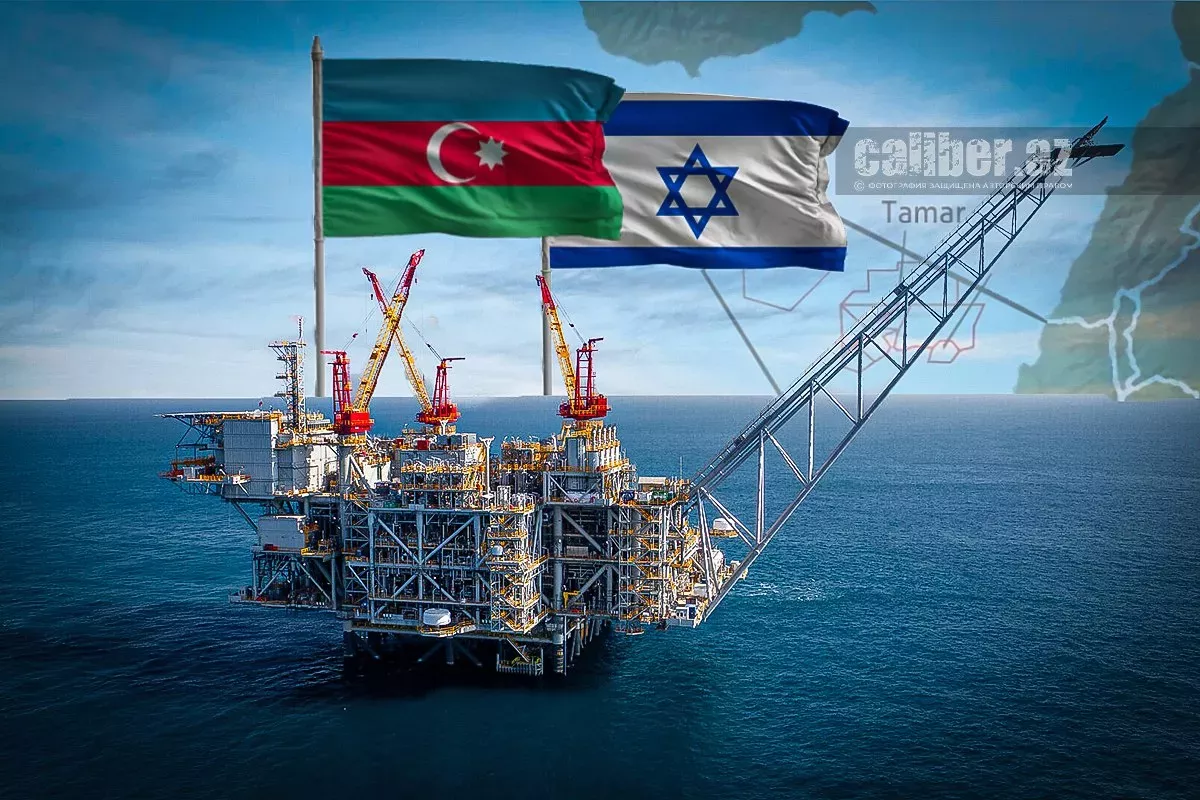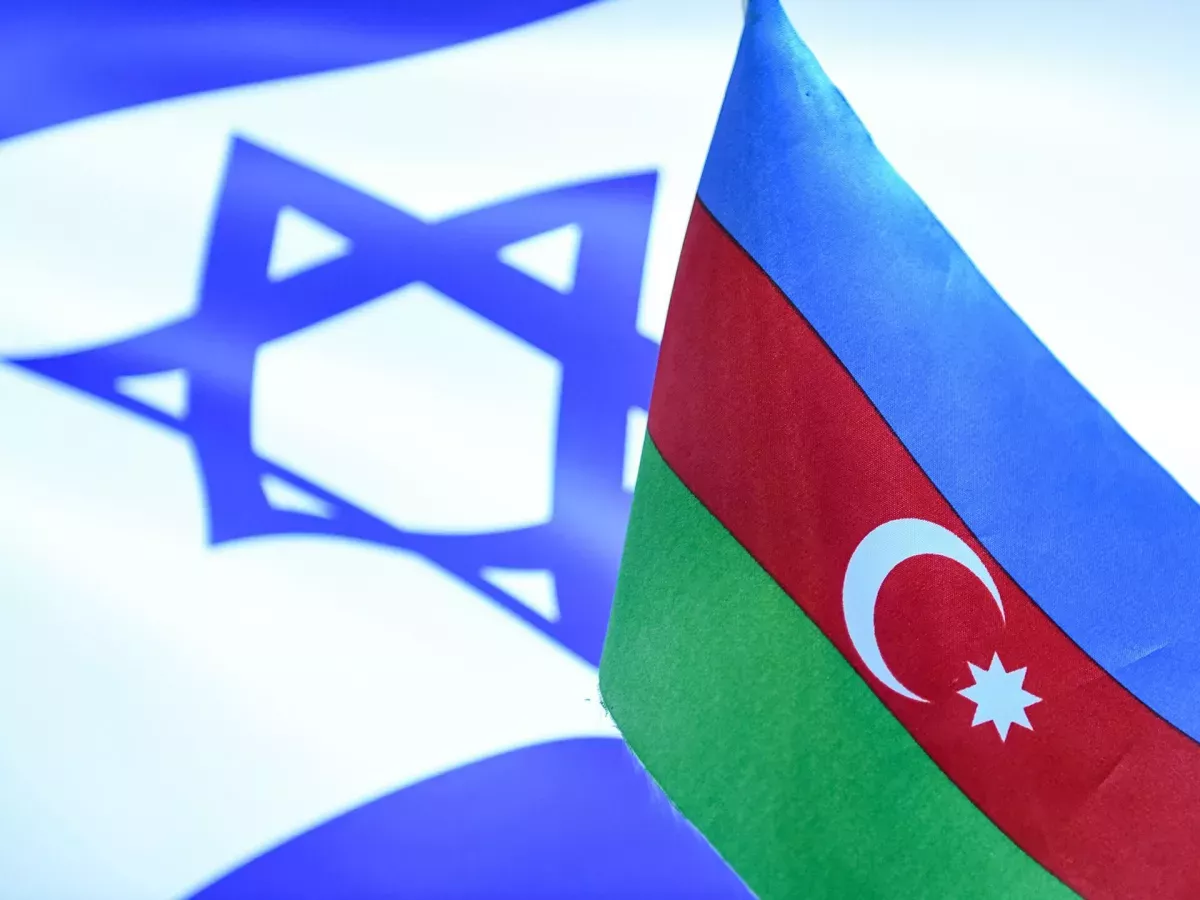Azerbaijan–Israel: cooperation without barriers Defence, energy, and beyond
Over the past three decades, the friendly interstate relations between Azerbaijan and Israel have laid a solid foundation for cooperation in defence and energy. Recently, the two countries have been making every effort to elevate their trade, economic and investment cooperation in the non-oil sector to a qualitatively new level. As part of diversifying their business partnership, the sides have identified agriculture and water management, the IT sector and venture capital, as well as “green” energy, tourism and pharmaceuticals as priority areas. These key economic-track directions were discussed in recent days in Jerusalem, where the 4th meeting of the joint Azerbaijan–Israel intergovernmental commission (IGC) was held with the participation of an Azerbaijani Economy Ministry delegation.
During this period, relations between Azerbaijan and Israel have been built on mutual interest and respect, as well as on the strong historical ties between the two peoples and their shared desire for partnership across business, social and humanitarian fields. Traditionally, economic cooperation has been anchored in the energy sector, while the two friendly countries have also maintained successful long-term collaboration in the military-technical sphere.
At various periods, Azerbaijani oil has supplied between one-third and one-half of Israel’s total crude needs. Deliveries were primarily made through the Baku–Tbilisi–Ceyhan pipeline, with the oil transported by tanker from the Turkish port of Ceyhan for processing at the Bazan refineries in Haifa and at the Paz refinery in Ashdod. Azerbaijan’s export structure has also included small volumes of petrochemical products such as methanol, urea fertilisers, polymers and others.
Hydrocarbon supplies and defence products have long formed the backbone of trade between the two countries, with bilateral turnover reaching its peak — around $5 billion — in 2019. However, in the post-pandemic period, the pace of trade has somewhat declined. Notably, in recent years, Baku and Tel Aviv have set out to diversify their economic partnership by significantly expanding business activity in the non-oil sector.

“Within the framework of our working visit to the State of Israel, we held a meeting with Zeev Elkin, Minister at Israel's Ministry of Finance and Co-Chairman of the Azerbaijan–Israel Joint Commission. We exchanged views on the activities of the Joint Commission, the prospects for advancing bilateral economic relations, and the effective realization of the existing business partnership potential,” Azerbaijan’s Minister of Economy Mikayil Jabbarov wrote on his X page on November 21. The visit also included a productive meeting with Israel’s Minister of Energy and Infrastructure, Eli Cohen, during which the parties “exchanged views on strengthening cooperation in the fields of energy and water management, as well as expanding joint activities in oil and gas.”
In recent years, the two countries have been rapidly expanding their investment cooperation, with Azerbaijan now emerging as the main driver of growth. In the first half of 2025, Azerbaijan’s direct foreign investments (FDI) in Israel’s economy reached $542.543 million — a 1.356-fold increase year-on-year. It is worth recalling that on January 31 of this year, Azerbaijan’s state oil company SOCAR concluded a deal with Union Energy to acquire a 10% stake in the Tamar project, one of the largest offshore gas fields in the Mediterranean.

Israeli businesses are no less interested in establishing joint ventures, a field viewed as one of the key directions of non-oil cooperation. During the Commission meeting, it was noted that 125 companies with Israeli capital are currently operating in Azerbaijan across industry, agriculture and food technologies, construction, trade and services. Israeli firms are showing strong interest in collaborating with Azerbaijan in renewable energy, high technologies, the financial and IT sectors, as well as in security and healthcare. Considerable potential was also highlighted for expanding cooperation in pharmaceuticals, biotechnology and other high-tech industries.
The Israeli co-chair of the Intergovernmental Commission, Zeev Elkin, stressed the importance of holding such meetings to further strengthen bilateral relations and explore opportunities in new areas. Notably, many of the proposals for non-oil cooperation voiced during the four commission meetings are gradually taking shape in concrete projects. One example is the Israeli company BioPharmax, registered in the Alat Free Economic Zone (AFEZ), which is currently building production facilities where it plans to manufacture 50 types of medical products, primarily insulin.
Today, Israeli businesses are actively involved in projects aimed at the revival and reconstruction of Azerbaijan’s liberated territories — including agriculture, the construction of smart cities and villages, water supply systems, and more. Several Israeli companies, in particular, took part in the development of smart village projects in Azerbaijan’s Zangilan and Fuzuli districts.
Azerbaijan is also implementing the region’s largest project to build the country’s first major seawater desalination plant. It is worth recalling that in September 2023, Azerbaijan’s water operator Azersu OJSC and Israel’s Mekorot Water Company signed an agreement for technical consulting in this field.
Joint initiatives in agriculture, efficient irrigation, agrarian education, and consulting services are also highly promising. Collaboration with Israeli firms has been established in the production of high-yield vegetable and fruit seeds, selective breeding, “smart” greenhouse farming, and high-yield livestock management. Israel intends to provide Azerbaijan with unique technologies to significantly increase wheat yields, including through the cultivation of arable lands in the Karabakh region.

Highly prioritised are joint initiatives in the development of startups and the digital economy. Several years ago, an agreement was signed between Azerbaijan Investment Company (AIC) and Israel’s leading venture capital firm OurCrowd. In July of this year, AIC and OurCrowd further strengthened this partnership by signing an investment agreement to fund Azerbaijani startups. Meanwhile, the Ministry of Digital Development and Transport of Azerbaijan has recently established a collaboration with the Technion – Israel Institute of Technology to enhance workforce capacity in cybersecurity.
Azerbaijan has identified Israel as one of its key target countries in the Middle East for developing bilateral tourism ties. In this context, several years ago, the Azerbaijan Tourism Board opened an official tourism office in Tel Aviv. Since then, daily direct flights between Baku and Tel Aviv have been established by AZAL, while Israeli carriers Israir Airlines and Arkia also operate regular flights to Baku. Azerbaijani travel agencies are actively promoting tourist destinations and new tour products in Tel Aviv. These efforts have yielded significant results: last year, 28,955 Israeli citizens visited Azerbaijan, and in the first three quarters of 2025, the number of Israeli travellers reached 36,037—a 60.7% increase compared to the same period the previous year.
The areas highlighted above represent only a portion of the potential avenues for expanding Azerbaijan-Israel business cooperation. Accordingly, participants at the Jerusalem meeting emphasised the importance of holding sessions of the Joint Intergovernmental Commission as a platform to further strengthen bilateral relations, explore new opportunities, and implement joint projects in the non-oil sector.








